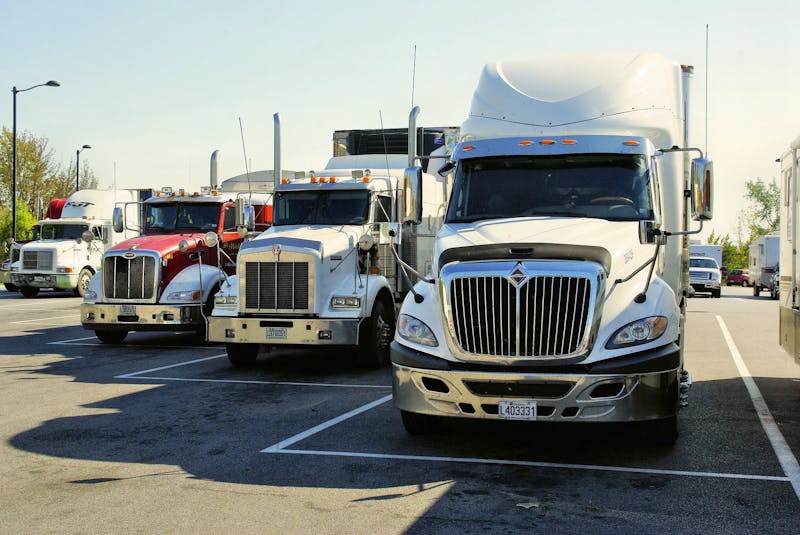
The consequences of a truck accident can be deadly. Semi-trucks weigh thousands of pounds even if they aren’t carrying a full load of cargo.
If a semi-truck smashes into another vehicle, the damages can be devastating. The injuries could be catastrophic, affecting the victim financially, physically, and emotionally for the rest of their lives.
Fortunately, help is available for truck accident victims. If you were injured in a truck accident, you may be entitled to compensation for your injuries.
But first, you will need to determine who is liable, which is not easy. That’s why it’s so important to seek legal representation from a Tampa Bay personal injury attorney who can help you establish liability and secure the compensation you deserve.
What Do You Have To Prove In A Truck Accident Case?
There are several factors that need to be proven in order to recover compensation in a truck accident case.
First, you must show that the defendant owed you a duty of care. For example, a truck driver has a legal obligation to drive responsibly and be mindful of the other road users around them. This obligation to act in a way that does not put others in danger is known as a duty of care.
The second element you will need to prove is that the defendant breached their duty of care. By law, if someone breaches their duty of care, they are considered negligent. For instance, if a truck driver operates a truck while under the influence of alcohol, they are breaching their duty of care since they are putting other road users in danger.

You must also show that the truck accident occurred as a result of the defendant’s breach of their duty of care. Facts and evidence supporting how the accident could have been avoided if the responsible party were upholding their duty of care should be presented to solidify your case.
Finally, you will need to show that you suffered damages as a result of the truck accident. This may include medical expenses, lost wages, property damage, and mental and physical pain and suffering, for example.
Who Is Liable For Truck Accident Injuries?
Although it may seem easy to simply place blame on the truck driver themselves, that’s not always the case. Your attorney will need to closely analyze the facts of the case to determine who was truly at fault.
It is difficult to prove liability as the driver could be responsible or even the truck driving company. For example, say the accident occurred as a result of the truck driver’s drowsiness.
It may seem as if this is solely the truck driver’s fault, but their employer could be held liable as well. The trucking company could have pressured the truck driver to violate federal regulations by working long hours in order to meet unrealistic deadlines.

Trucking companies can be held liable under vicarious liability laws, which hold employers liable for negligent acts committed by their employees while on-the-clock.
Did you know that even the company who loads the cargo into the truck could be held liable? Many accidents occur as a result of improperly loaded or unsecured cargo. If you were injured in an accident caused by one of these factors, the company that loaded the cargo onto the truck could be held liable for your injuries.
A manufacturer can also be held liable if the accident occurred as a result of a defective part. For instance, say a truck driver crashes into your vehicle because the brakes were defective and he is unable to stop the truck. In this case, the company that manufactured these brakes could be held liable for your injuries.
These are some of the many parties that could be held liable in a truck accident case. To determine liability, your attorney will need to conduct a thorough investigation into how the accident occurred and why. Your attorney can review the truck’s maintenance records, analyze photos from the scene of the crash, work with expert witnesses to reconstruct the accident, and obtain crucial documents from the trucking company in order to determine liability.
Who Pays For Truck Accident Damages?
The liable party is responsible for compensating the victim. But this doesn’t mean the money will come out of the liable party’s pockets. In most cases, the liable party’s insurance company is responsible for compensating the victim.

Trucking companies, parts manufacturers, and other large corporations tend to have more insurance coverage than truck drivers. For this reason, you may be able to recover more compensation if one of these parties is liable for your injuries.
It’s possible that more than one party will be held liable for your injuries. This is one of the many reasons why truck accident cases are so complex. Don’t try to establish liability on your own—let an experienced truck accident attorney handle this complex step in the process.
Need Help Proving Negligence? Don’t Hesitate to Contact Us
Each personal injury case is different. The details may vary depending on what happened to you and how, especially when huge semi-trucks are involved. Even the legal strategy that could be the most beneficial may vary from case-to-case, which is why it’s so important to have a legal team guiding you through the entire process.
If you have been injured in a truck accident, don’t hesitate to call us. We’re here to help you recover compensation for your injuries. Truck accident cases are known for their complexities, but our team has the experience and resources that you need to win the compensation you deserve.

